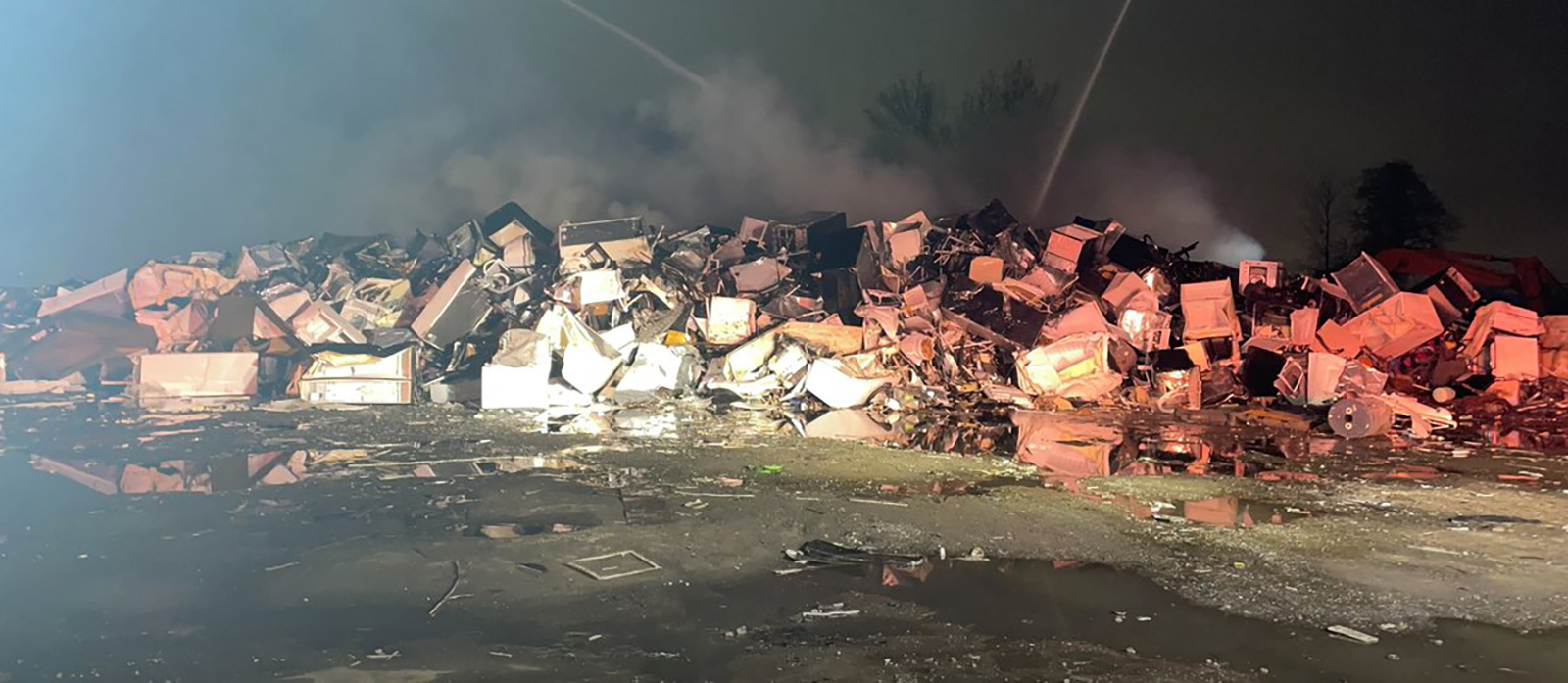Nauseating Odors from Sprague Terminal Return to Allens Ave.
February 3, 2020
PROVIDENCE — After some progress was made in eliminating overpowering odors from an asphalt tank facility on Allens Avenue, the problem has returned, culminating in an overwhelming emissions release last month.
Throughout the day on Jan. 23 the Rhode Island Department of Environmental Management (DEM) and the attorney general’s office received complaints of a noxious and nauseating asphalt/sulfur odor along Allens Avenue and on South Main Street, an area not known for experiencing industrial fumes from the city’s working waterfront.
The source of the intense odor was soon identified as tank 5, one of six tanks at the Sprague Energy Terminal next to the intersection of interstates 195 and 95.
Tank 5 is equipped with a temporary odor-control system. But after it was filled from a barge containing a liquid called roofing flux, the polluted air in the tank was flushed out.
“The odors emanating from the Facility are unreasonably interfering with the health, safety, peace, comfort and convenience of the community and the Facility is the proximate cause of these foreseeable, preventable, and ongoing injuries to the community,” according to a Jan. 28 letter describing the incident from special assistant attorneys general, Alison B. Hoffman and Gregory S. Schultz, to a Sprague attorney in Boston.
The contents of the emissions and the public health impacts aren’t known, but DEM is testing the material to determine the chemicals. According to the Environmental Protection Agency, particulate matter and volatile organic compounds (VOCs) are emitted from asphalt storage tanks.
The odor problems began in September 2017 after Sprague converted two of its tanks to retain liquid asphalt products. Almost immediately, the asphalt odors materialized in the immediate area and complaints started soon after.
After Sprague failed to address the problem, DEM issued a $22,500 fine and a notice of violation on May 17, 2019. Sprague is appealing the fine.
The notice required Sprague to cease tanker shipments until DEM-approved odor-control systems were installed on tanks 1 and 6. Tank 5 was allowed to operate with an interim odor-control method and undergo monitoring for its effectiveness.
“However, it is now apparent that the alternate interim control is not controlling odors from this facility,” according to the attorney general’s letter.
Sprague had promised to have the odor controls in place in early 2019, but they weren’t completed until August of last year.
DEM suspects that the possible source of the odor is a new asphalt product being used by Sprague. DEM, Sprague, and Irving Oil, the asphalt provider, are analyzing the material together.
“We want to know what’s in the product,” said Terrence Gray, DEM’s deputy director of environmental protection.
The attorney general’s office and DEM are asking the public to report future incidents of odor irregularities to DEM’s Office of Compliance and Inspection at 401-222-1360, or 401-222-3070 after 4 p.m. Complaints can also be filed via email at [email protected].
Sprague Industries, based in Portsmouth, N.H., declined to comment on the latest incident. Sprague operates 20 shipping and storage terminals in the Northeast, including petroleum storage tank operations in Providence and East Providence.
In 2019, a Sprague tank faciliy in South Portland, Maine, was issued a notice of violations by the Maine Department of Environmental Protection and the EPA for air violations storing No. 6 oil and asphalt. Residents and elected officials were caught off-guard by the violations and the lack of public notice from the EPA. There is particular concern about VOCs and their links to asthma, respiratory issues, cancer, and damage to the nervous system.
Allens Avenue is under similar scrutiny by neighborhood groups in South Providence and Washington Park. City officials and neighborhood groups meet periodically with an EPA representative as part of the Port/Community Working Group, led by Dave Everett in the city’s Office of Planning & Development.
Schultz, special assistant with the attorney general’s environmental advocacy unit, said the city’s waterfront is getting special attention regarding pollution.
“2020 is going to be, from an environmental perspective, about the Port of Providence,” Schultz said.




This is unacceptable. As a parent to a child who attends a Foxpoint school, I am very disappointed that there isn’t more oversight of companies who pollute our air.
Who is to say that all harmful substances have a detectable odor? How is the public going to notify DEM if they are breathing a harmful chemical that has no odor? How are these chemicals affecting patients at Rhode Island Hospital. Some of these patients need oxygen.